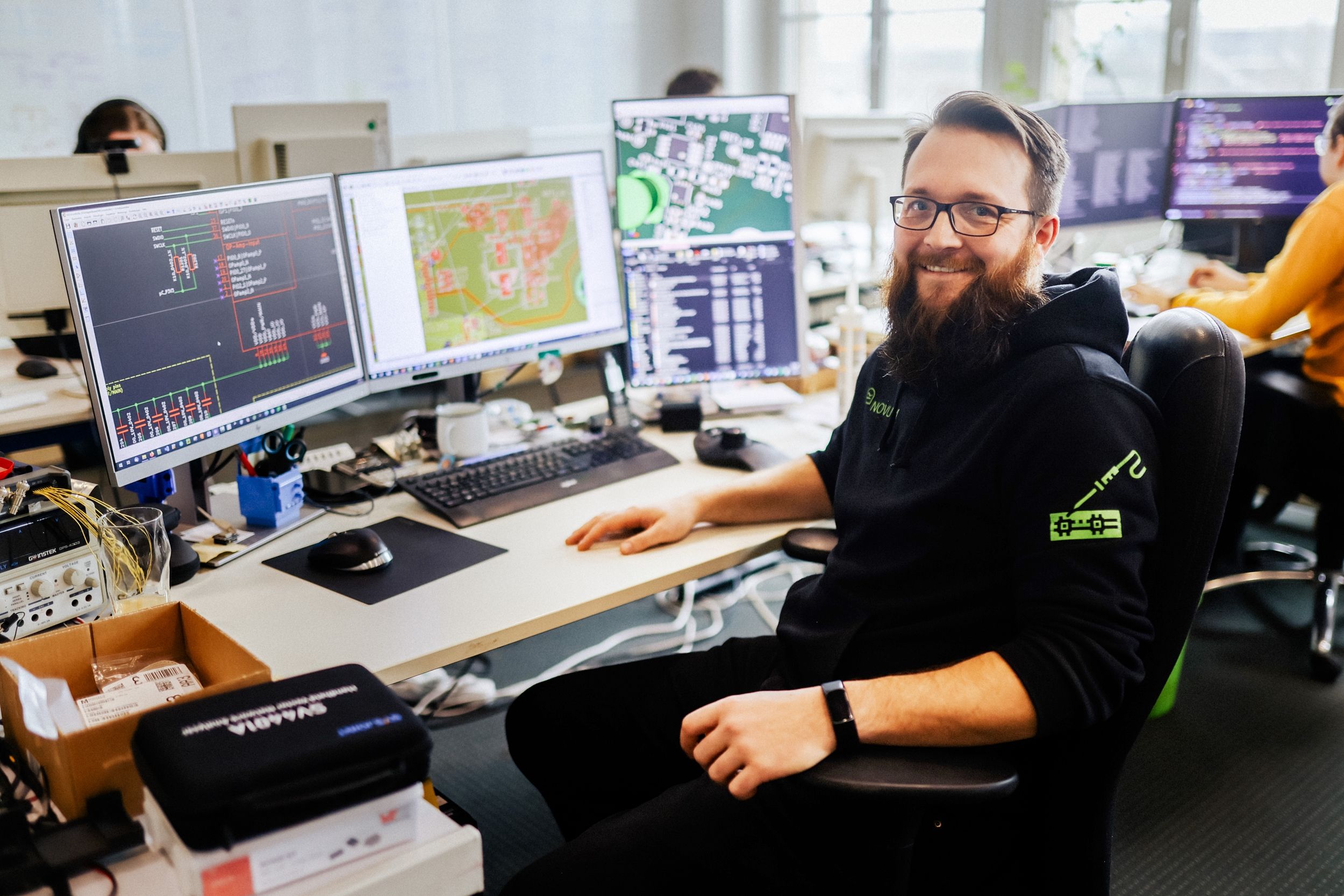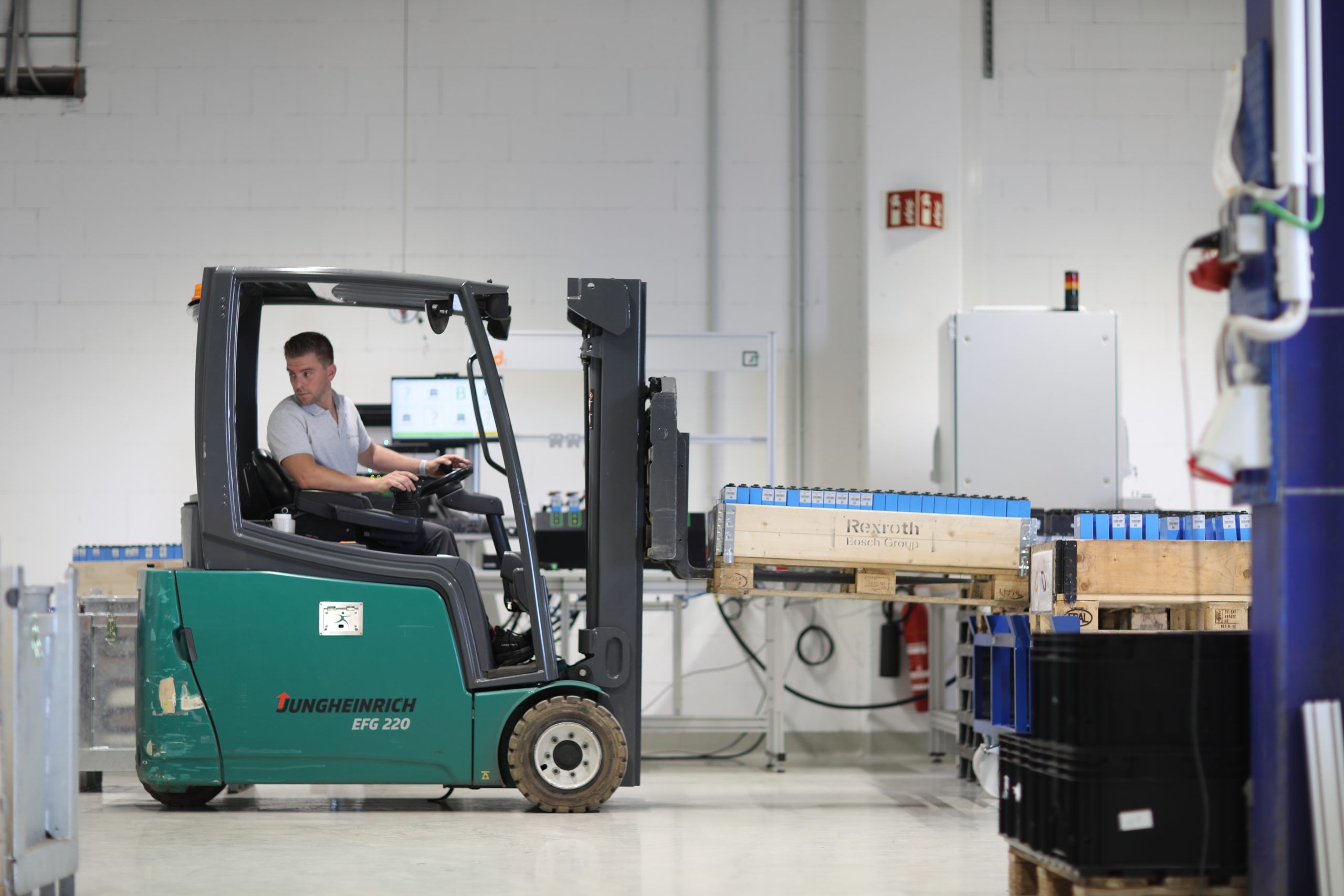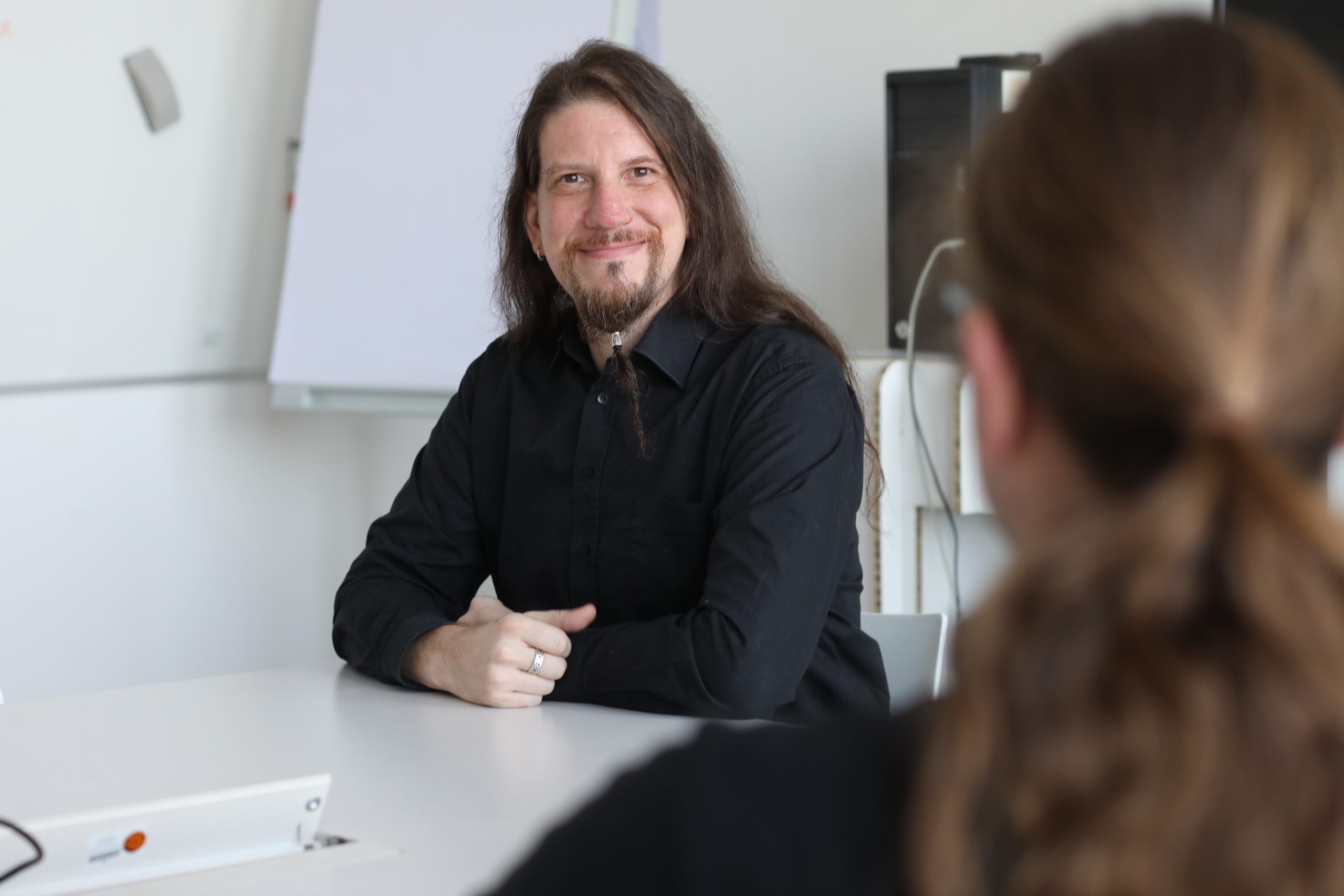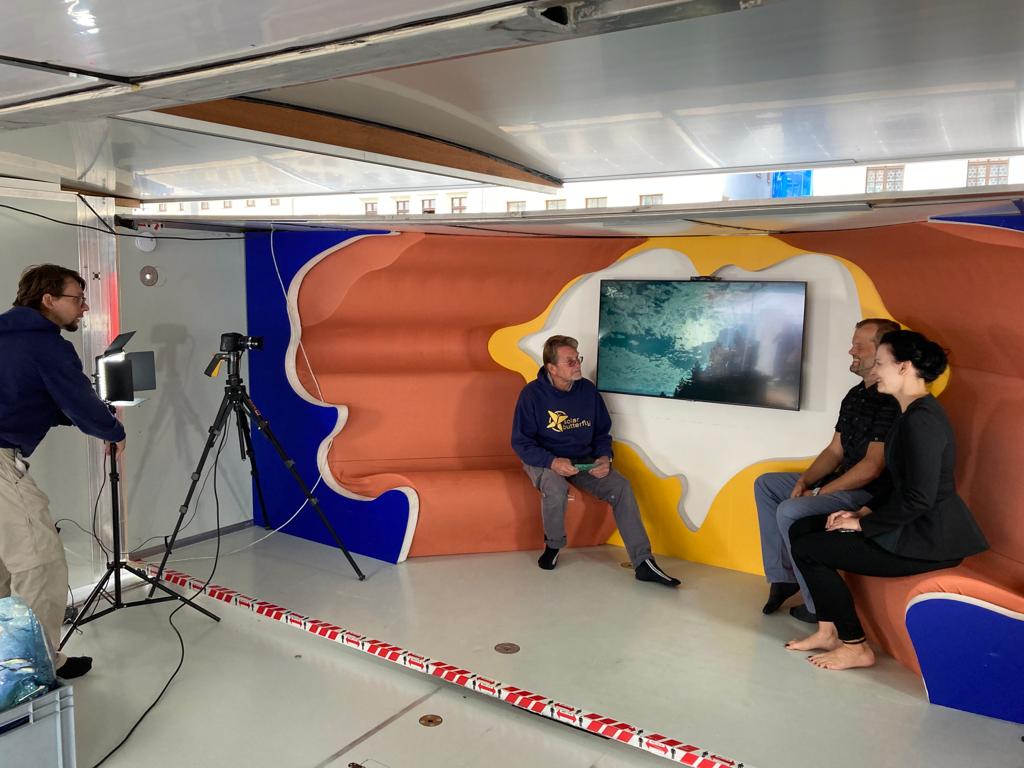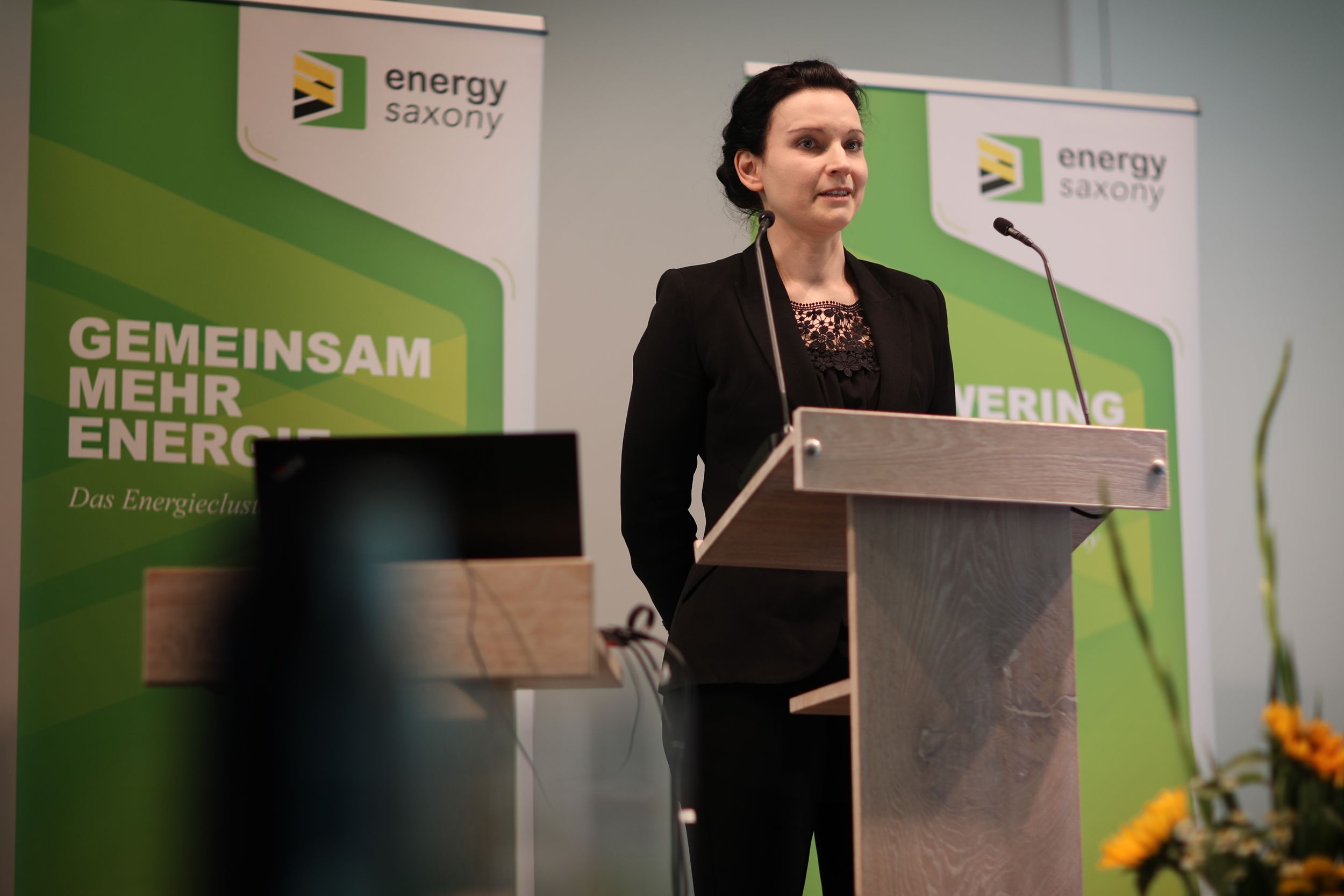Circuit diagrams, circuit boards, soldering irons, CAD and prototyping: the world of hardware development is diverse and complex. René Bremer knows his way around. He has been building measurement technology for various applications for 20 years. In this interview, NOVUMS hardware developer gives us an insight into his work.
What do you do at NOVUM?
I am a hardware developer. I do everything that has to do with electronics and mechanics. From the circuit diagram to the finished circuit board and housing design. That’s rare these days, but I combine everything in one.
What are you working on right now?
Many things. For example, I solder components onto the circuit board in order to advance the release for our series production.
What is the best thing about your work?
The variety, the exciting tasks and the cooperation with the team.
How did it come about that you became a hardware developer?
My father awakened my fascination for hardware development because he tinkered a lot with electronics. That’s why I trained as an industrial electronics technician for appliance technology. The training was first class — I would never have wanted to do anything else.
Is there anything you are particularly proud of?
In my old company, I developed and built fuel cell test benches together with our NOVUM CTO Sören. The great thing is that the test benches are still in use in various companies today.
What advice would you give to someone starting out in hardware development?
Find a mentor, someone who has been doing this for a while. Sharing experiences is the most important thing. I’ve read a lot of books — there’s a lot in them — but the knowledge is so bound up with experience and practice that you can’t proceed according to a concrete scheme.
What trends are you observing in hardware development?
The materials are getting better and the electronic components are getting smaller. That is impressive! Our mobile service tool for battery analysis is currently the size of a pack of cigarettes and we could shrink it even further. In general, electronics are becoming more mobile. It is now possible to produce flexible printed circuit boards or to print printed circuit boards on things. There are even the first 3D printers that can print circuit boards.
What three skills should you have if you want to do hardware development?
A lot of creativity, strong imagination and craftsmanship.
What hobbies do you have that are related to your field?
In my private life I am also an electronics engineer and design prototypes. That’s where I learn relevant knowledge for work. In fact, I also read a lot of specialist books. Apart from that, I manage 3 forests and work on a horse farm, where I also repair agricultural equipment. I even used to build custom bikes. But this has nothing directly to do with hardware.

